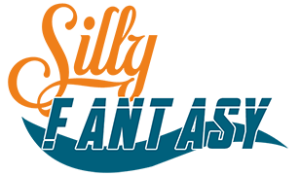Among the many types of EMRs available, OncoEMR stands out as an exceptional choice for cancer care providers. It offers the following: InterFAX Inbound Faxing, iKnowMed, and support for MIPS & Oncology Care Module (OCM).
MOSAIQ
Developed by Flatiron, OncoEMR is an electronic medical record system with multiple benefits. In addition to its clinical features, it also offers practice management, document search, and other useful oncology functionalities. Its interfaces with a variety of health IT vendor systems, as well as its glitch-free filters, make it a standout among the rest.
Flatiron has designed OncoEMR with the aim of helping oncology practices. In fact, it has been designed to help users with dosage management, and other crucial oncology functionalities. Its suite of modules is interoperable with Varian ARIA, which is a comprehensive cancer treatment management software solution.
The system’s nifty tidbits include a patient portal and analytics, as well as an integrated billing management module. In the grand scheme of things, however, its most significant feature is its on-site integration with Varian’s ARIA system. The software is easy to use and its team is on hand to support new providers.
One of the most impressive features of the system is the image review, which cuts the time it takes to view cone beam computed tomography images by a considerable amount. In the past, physicians had to scan the images themselves. This process took several minutes. The MOSAIQ EMR has a feature which automatically captures the details of each fraction of radiation. This, in turn, has saved physicians many hours of work.
Although the software’s capabilities are fairly limited, the company is committed to providing an unmatched level of support. In particular, it has rolled out a number of innovations to the version 15 release, including several features to enhance collaborative workflow.
The oncology EHR market is quite a crowded one. With so many choices to choose from, it can be tricky to determine which system to buy.
iKnowMed
iKnowMed for OncoEMR is a cloud-based Electronic Health Records (EHR) software designed to meet the unique requirements of oncology practices. It includes a wide array of tools, including value-based care, a virtual training center, and evidence-based clinical pathways.
Its features help enhance the overall quality of cancer treatment across all care settings. It also allows oncologists to monitor treatment outcomes and detect high toxicity levels. It also provides comprehensive point-of-care treatment decision support.
iKnowMed is an interoperable EHR system for oncology practices. It is designed in collaboration with oncologists to provide an efficient, mobile experience. It is a highly customizable solution for both small and large medical practices. It provides a complete EHR that includes group training, clinical charting, electronic prescribing, order tracking, and remote access.
The system is customizable, and it allows physicians to set up an oncology-specific workflow. It also integrates with other EHRs, and it is a cloud-based solution. The system also supports a variety of alternative payment models.
In addition to its EHR, Caris offers broad molecular profiling services, including comprehensive DNA sequencing. It is also the first partner to offer whole transcriptome sequencing capabilities. It has invested in infrastructure to develop scalable, enterprise-wide integrations.
The iKnowMed for OncoEMR system is a robust oncology practice management system that is easy to use. It also includes a clinical trials management system. Its HL7 interface allows PDF results to be transmitted via the EHR.
The oncology EMR software can also be integrated with billing and scheduling software to provide a comprehensive solution. Its 150+ preloaded reports can extract business insights. The OncoEMR system also includes a patient portal. Its real-time dashboard allows physicians to view the status of their patients, and it provides chemotherapy updates.
Read Also: CPSI EMR
InterFAX Inbound Faxing
Until now, medical practices have relied on analog fax machines and on premise fax services to get their oh so important medical information into the hands of their patients. With the advent of the cloud, however, it’s now possible to send secure PHI directly to the repository. InterFAX, a cloud-based electronic fax provider, offers robust inbound and outbound faxing capabilities with no hardware to buy, install or maintain.
The InterFAX API allows subscribers to send and receive secure PHI directly from their fax queue. Aside from its ubiquity, this scalable solution also boasts a high level of security and authentication based standards. Aside from a plethora of features, the service is also PCI DSS Level 1 certified.
The InterFAX library is available for download at GitHub. The library comes with a variety of fax and telephony-centric APIs and sample code to boot. The library is designed to be used in a variety of scenarios and it’s no wonder, considering the robust set of tools and features it offers.
While the InterFAX library has its share of flaws, its sheer volume and popularity makes it a must have for any enterprise looking to modernize their faxing arsenal. Using the service, you can rest assured that your faxes will be delivered in the most efficient manner. The company has a slew of offerings, including a fax server, a fax gateway, and a fax server gateway, all of which are designed to work together to achieve your faxing goals. This is all while maintaining the highest level of confidentiality. The company has also been on the forefront of innovation, incorporating technologies that no other fax company has, ensuring that your faxes are handled with the utmost fidelity.
Support for MIPS & Oncology Care Module (OCM)
Designed specifically for oncology practices, OncoEMR supports MIPS & Oncology Care Module (OCM). The program is a voluntary value-based care initiative that incentivizes practices to improve patient care and lower costs. Its implementation has the potential to transform the way oncology patients receive care.
The Oncology Care Model (OCM) is a five-year program that includes 16 payers, almost 200 oncology practices, and performance accountability. The goals of the program include providing better coordination of care, reducing cost, and improving the experience of patients receiving chemotherapy.
The Center for Medicare & Medicaid Innovation developed the program as a means to provide incentives to oncology practices to deliver high quality care. The incentives were created through a two-part payment system. The first part was a Monthly Enhanced Oncology Services (MEOS) payment, which was paid for the duration of an episode. The second part included a performance-based payment incentive that incentivized practices to lower costs and improve health outcomes. The incentives were tested at pilot sites in The US Oncology Network.
The Oncology Care Model is a partnership between the Center for Medicare & Medicaid Services and commercial payers. It was developed to address complex care needs of beneficiaries who receive chemotherapy. The project’s initial results show that community-based practices are ready for success.
OncoEMR supports MIPS & OCM by allowing practices to access and manage treatment records, and delivering critical Oncology functionalities and workflows. It also streamlines clinical procedures and provides valuable resources for value-based care programs.
The OncoEMR team is dedicated to support MIPS and OCM. They provide registry-ready reports and live training for healthcare workers. They help users identify and qualify eligible patients and provide assistance with data analytics.
Integration with other CGP platforms and EMRs
Having a seamless integration between your CGP platform and your EMR will streamline the ordering and tracking of tests. This will make it easier for doctors and patients to get the information they need to develop personalized treatment plans.
An integration with other CGP platforms and EMRs will also allow you to integrate patient data with other systems like medical billing and analytics. This will give you the ability to access information about your patient’s health history, insurance information and demographics. It will also help you with scheduling and billing.
An integration with other CGP platforms will not only provide a better experience for your patients, but it will increase the efficiency of your practice. Having a smooth flow of data between the different systems will help you reduce transcription errors and improve operational efficiency.
An integration with other CGP platforms can also provide your staff with enhanced clinical reporting tools and patient engagement tools. This will help you collect more data about your patients and improve the overall quality of your patient’s care.
A smooth communication process will also allow your patients to take the lead in their own care. This is because they will have the opportunity to view their own records and share their feedback with their healthcare providers.
While there are many benefits to having an integrated EMR, you need to be sure you have the right tools in place. There are hundreds of EMR integrations that can be purchased to add value to your healthcare practice. You will want to choose a solution that will meet your unique practice’s needs.
Before deciding on a solution, you will need to assess your practice’s workflow. This will enable you to develop a proper implementation strategy for your integration project. This includes defining your scope of integration, involved stakeholders, and organizational requirements.








